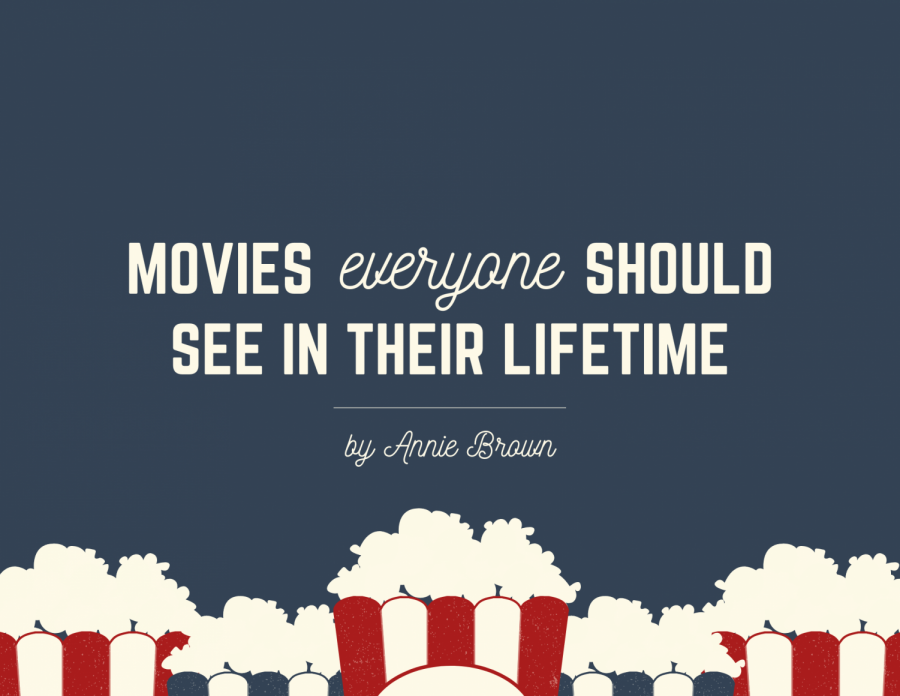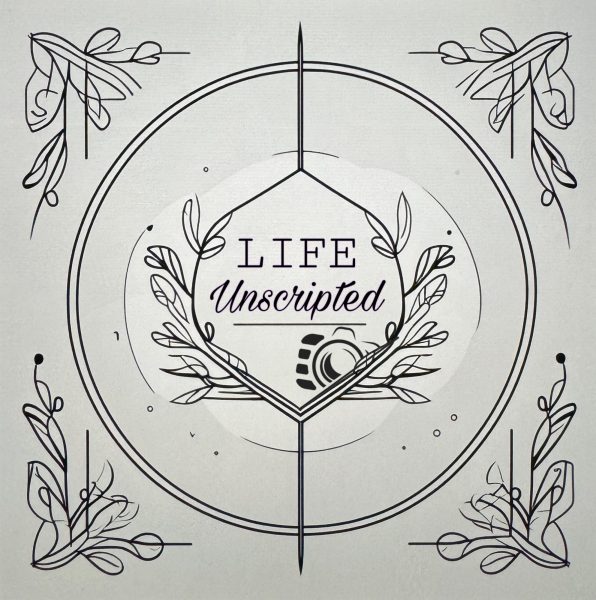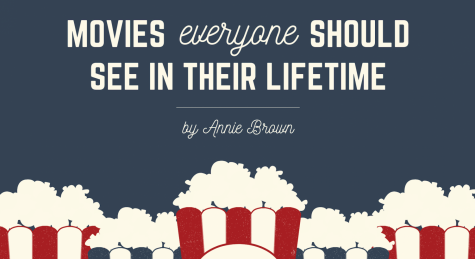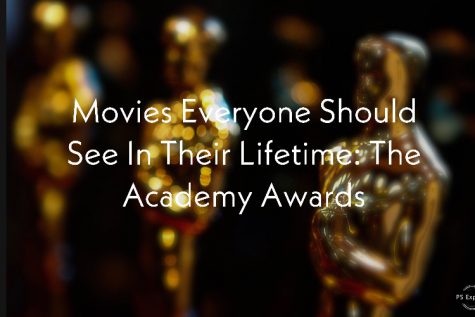Movies everyone should see in their lifetime
Four years ago, in the study hall of my middle school cafeteria, I began to draft a list. I titled it “Movies EVERYONE Should See In Their Lifetime.” I wanted everyone to fall in love with the films I adored, so I began to add all of my favorite movies to this small, half-a-google doc list. I started taking suggestions, and looking at today’s list, I could still tell which movies were suggested by whom. This list became somewhat of my legacy. My friends quiz me on my claims that I know quotes from “every movie on the list” (which is only somewhat true), people I’ve barely even met already know about my list, and my Instagram polls get pretty heated when I claim Ethan Hunt is way better than James Bond. The natural next step was to share it with everyone, right? Every week, I go through a different movie that managed to make a list that now strains to stay on two pages. What I liked, what I didn’t, where you can watch: you have found the movie you’ve been looking for, and it won’t take you a lifetime to see it.
The Breakfast Club
Year: 1985
Genre: Teen/Drama
Rated: R (language, drug use)
Rotten Tomatoes Score: 89%
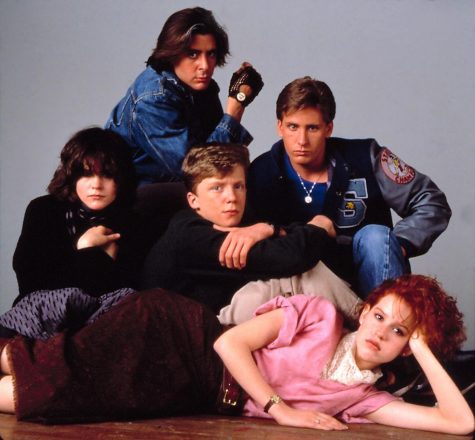
It’s Saturday, and five high schoolers of vastly different locations in the social strata are all doing the same thing: serving detention. Their principal (Paul Gleason) wields his power with vigor, forcing the students to remain in the school library until they each write a thousand-word essay answering the prompt, “Who do you think you are?” None of the students want to write the paper. Claire (Molly Ringwald), preppy and popular, thinks that she is above writing it, and above detention as a whole. Brian Johnson (Anthony Michael Hall), the local brainiac, feels that the whole thing is a huge misunderstanding. Andrew (Emilio Estevez), the school’s star athlete, is burnt out and sick of his all-American reputation. Allison (Ally Sheedy), the slightly disturbed outcast, is silent and furious, and Bender (Judd Nelson), the rebel, has a long history with detentions. All of these students fight their inner and outer conflicts, all combining with plenty of teen angst to form the incredible aggregate that is this John Hughes Brat Pack classic.
What I liked: The Breakfast Club easily lives up to all the hype that surrounds it. I am not a consistent John Hughes fan, so this is a rare compliment for a film I’d usually look at pretty critically, considering its popularity. Something about The Breakfast Club struck me as being very real. Hughes often deals with class disparities that feel forced within the context of high school, because in reality, relevance in high school is not often divided into economic classes. This film took on popularity as a construct of personality, what you’re willing to give- and give up for- your social life. Each character was captivating in his or her own way. Claire and Andrew were the classic “worshipped,” but neither was truly happy with their situation. Brian was similar, but more naive, more willing to subscribe to the system which benefited him academically. Allison and Bender were both the ignored, and therefore the underestimated, struggling with the boxes they were forced inside so long ago. Even the opening scene draws parallels between the characters; each student is dropped off by their parents (or lack thereof, in Bender’s case), revealing the set of expectations under which all high school students live. The whole thing, though certainly caricturized, felt very realistic for that common high school experience to which we can all relate.
What I didn’t like: It could just be the style of the filmmaking for its era, but parts of this film felt contrived and corny. Throughout my viewing, I had the distinct feeling that I was watching a movie made for me, a film created by adults to relate with a group they’ll never really be able to reach. It’s kind of a sickening thing, listening to monologues about “adults not understanding us” that you know are crafted by those very adults who may have a thing or two to learn. Overall, Hughes created a pretty realistic film, but in those moments I felt a little cheated by the tiredness of teenage pandering.
Conclusion: It would not be a stretch to say that The Breakfast Club may be the most essential film in the teen movie canon. Every film that came after simply searches for the kind of character resonance that this movie brought. Just that quote alone, the Bowie one that opens the film:
“… And these children that you spit on as they try to change their worlds are immune to your consultations. They’re quite aware of what they’re going through…”
That quote brings up those huge themes that connect distinctly with the youth of 1985, and with the youth of today. Some of it was a little too contrived, but as a whole the movie is an angst-filled testament to who we are, and who we are becoming. This film is available for free with an Amazon Prime subscription or on YouTube starting at $3.99.

Annie Brown is a senior at Homestead High School. She is passionate about education and community service, serving as a youth ambassador for the Ronald...

